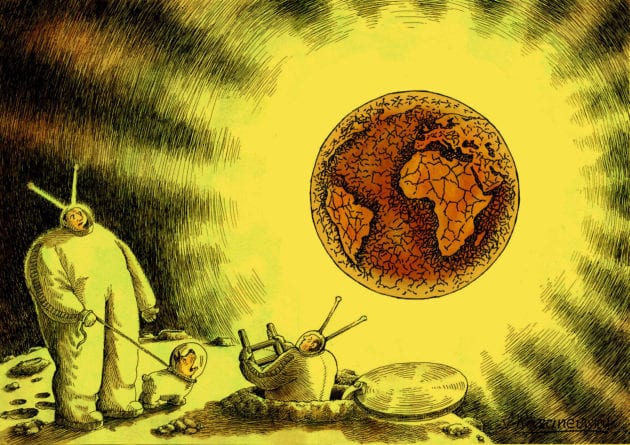BY MARK Y.A. DAVIES
I often hear sincere climate justice activists say that since it is likely that life on earth will find a way to come back like it has in previous mass extinction events that the real or primary reason to address the climate crisis is for the survival of the human species.
There is some truth in this assertion. Yes, life will likely find a way to come back as it has before, but if we are only addressing the climate crisis to save ourselves and our species then we fail to see the real loss and suffering that we are also causing our nonhuman siblings in life on this planet.
What we are doing to the planet is having and will continue to have a profound impact on non-human life, and the suffering we are causing nonhuman life is wrong in itself even if it did not also threaten the survival of the human species. If we take out ourselves through climate inaction, we will take out much of currently existing nonhuman life with us, and that life matters for its own sake.
The way forward to a deep commitment to climate justice is a recognition that we are all persons in a greater ecological community and the other members of our ecological community also have inherent worth that ought to respected. Yes, we are fighting for the survival of the human species, but we are also fighting for the survival and flourishing of so much more than ourselves.
It is difficult for some of us to think and act in non-anthropocentric ways. Most of us have been conditioned to view the world in dualistic and hierarchical ways with humans separate from and on top of nature. This attitude is one of the primary reasons that our human survival and the survival of other forms of life are now threatened.
The way forward to radical systemic change for a livable climate is to realize that we are not just saving ourselves; we are cooperating with our ecological communities to save as much life, both human and nonhuman, as we possibly can. In this attitude of love for the other members of our ecological community, we might even find a deeper salvation as members of the community of all life than we ever thought possible.







